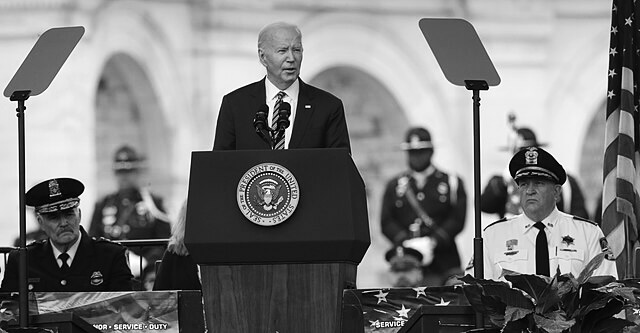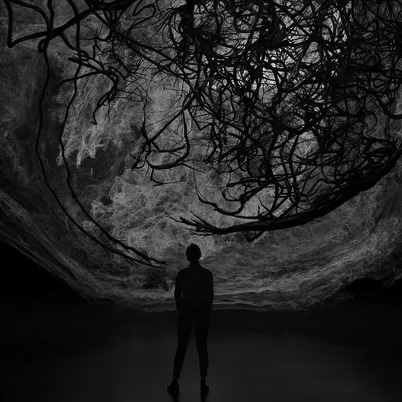Congress Confirms Ketanji Brown Jackson to Supreme Court
On April 7, President Joe Biden nominated Ketanji Brown Jackson to the Supreme Court. The Senate confirmed her nomination on a 53-47 final vote, with three Republicans joining all 50 members of the Democratic Caucus in supporting her. With this historic confirmation, Jackson will serve as the first Black female Supreme Court Justice when Justice Stephen Breyer retires this summer.
Senate Majority Leader Chuck Schumer called Jackson’s confirmation day “an even greater moment for America as we rise to a more perfect union,” in a tweet.
Born in Washington, Jackson excelled in speech and debate as a high schooler before graduating from Harvard Law School in 1996. She then served on the U.S. District Court for D.C. as well as the D.C. Circuit Court. During her time on the District Court, Jackson issued over 500 opinions on topics, including the Fourth Amendment. A federal public defender and a lawyer in private practice, Jackson was also a law clerk at all three levels of the federal judiciary.
Jackson’s extensive experience has won her the support of many, including the backing of 23 attorney generals from different states. In their letter of support, the attorney generals collectively wrote, “Judge Jackson is a highly qualified legal mind, who has been at the forefront of the legal field for decades and will serve our nation well as the first Black woman Supreme Court Justice.”
Neal Katyal, former Solicitor General of the United States, agreed: “[Jackson] has such an incredible dynamic … she’ll be a great spokeswoman in the court for the American public, at a time when the court’s credibility has been suffering for a bit.”
However, the close vote also reflects the split Senate. Despite an outpouring of support, Jackson has also received opposition from Republican politicians.
During the confirmation hearings, a group of Republicans fired questions at Jackson on topics including court-packing and crime in an effort to prevent her confirmation by painting her as a “liberal extremist who coddled criminals,” according to The New York Times.
Several Republicans, including Senate Minority Leader Mitch McConnell, walked out during the confirmation hearing. “Today, the far left will get the Supreme Court Justice they wanted,” McConnell said.
Many felt that McConnell and other Republicans’ opposition to Jackson’s confirmation was purely politically motivated.
It’s not the fact that there are Republicans in the Senate as much as there are a bunch of extreme Republicans in the Senate who asked a lot of inappropriate questions because they didn’t actually have anything of substance against Ketanji Brown Jackson… They tried to launch a culture war. — Neal Katyal
“It’s not the fact that there are Republicans in the Senate as much as there are a bunch of extreme Republicans in the Senate who asked a lot of inappropriate questions because they didn’t actually have anything of substance against Ketanji Brown Jackson … they tried to launch a culture war,” Katyal explained.
Jackson, however, remained calm and collected throughout the confirmation hearing. According to Congressional Black Caucus Chair Joyce Beatty, Jackson’s composed response to the questions shows that she has the “judicial temperament” needed to serve on the bench.
As Jackson is replacing another Democrat, Justice Stephen Breyer, her nomination does not shift the balance of the Supreme Court, which remains 6-3 in favor of Republicans.
Katyal notes that Breyer, someone for whom Jackson clerked, “mirror[s] a lot of [Jackson’s] judicial thinking, so it’s not a dramatic shift in the composition of the court.”
However, Katyal recognizes that Breyer and Jackson are not entirely identical justices, particularly when it comes to crime-related issues.
“Justice Breyer tended to be conservative on criminal cases,” he explained, “and [Jackson] is going to be toward the defendant.”
Jackson, however, may have little power to sway the court’s overall rulings. Because the Supreme Court’s conservative majority will remain in place, analysts predict that Jackson will find herself dissenting in many of the court’s major cases, including religious freedom and LGBTQ+ rights.
Jackson’s nomination has come as a joy to thousands, especially Black women in law. Just as many celebrated Biden’s January announcement that he was seeking a Black female justice, dozens of members of the Congressional Black Caucus celebrated the vote, confirming Jackson to the Supreme Court.
“It’s really important that the Supreme Court look[s] like America,” said Katyal.
Stephanie Goggans, an African American law student and an intern for an appellate judge, agreed, saying, “For the first time, I can look at the highest court in the country and see a face that looks like mine.”
Your donation will support the student journalists of Sidwell Friends School. Your contribution will allow us to purchase equipment and cover our annual website hosting costs.

Tara Prakash is currently Editor-in-Chief of Horizon. She served as a News Editor in the 2022-2023 and 2023-2024 school years. Prior to that, she worked...






















































